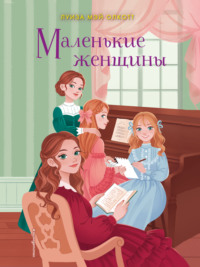 полная версия
полная версияSilver Pitchers: and Independence, a Centennial Love Story

Alcott Louisa May
Silver Pitchers: and Independence, a Centennial Love Story
SILVER PITCHERS
CHAPTER I.
HOW IT BEGAN
"We can do nothing about it except show our displeasure in some proper manner," said Portia, in her most dignified tone.
"I should like to cut them all dead for a year to come; and I'm not sure that I won't!" cried Pauline, fiercely.
"We ought to make it impossible for such a thing to happen again, and I think we might," added Priscilla, so decidedly that the others looked at her in surprise.
The three friends sat by the fire "talking things over," as girls love to do. Pretty creatures, all of them, as they nestled together on the lounge in dressing-gowns and slippers, with unbound hair, eyes still bright with excitement, and tongues that still wagged briskly.
Usually the chat was of dresses, compliments, and all the little adventures that befall gay girls at a merry-making. But to-night something of uncommon interest absorbed the three, and kept them talking earnestly long after they should have been asleep.
Handsome Portia looked out from her blonde locks with a disgusted expression, as she sipped the chocolate thoughtful mamma had left inside the fender. Rosy-faced Pauline sat staring indignantly at the fire; while in gentle Priscilla's soft eyes the shadow of a real sorrow seemed to mingle with the light of a strong determination.
Yes, something had happened at this Thanksgiving festival which much offended the three friends, and demanded grave consideration on their part; for the "Sweet P's," as Portia, Pris, and Polly were called, were the belles of the town. One ruled by right of beauty and position, one by the power of a character so sweet and strong that its influence was widely felt, and one by the wit and winsomeness of a high yet generous spirit.
It had been an unusually pleasant evening, for after the quilting bee in the afternoon good Squire Allen had given a bountiful supper, and all the young folks of the town had joined in the old-fashioned games, which made the roof ring with hearty merriment.
All would have gone well if some one had not privately introduced something stronger than the cider provided by the Squire, – a mysterious and potent something, which caused several of the young men to betray that they were decidedly the worse for their libations.
That was serious enough; but the crowning iniquity was the putting of brandy into the coffee, which it was considered decorous for the young girls to prefer instead of cider.
Who the reprobates were remained a dead secret, for the young men laughed off the dreadful deed as a joke, and the Squire apologized in the handsomest manner.
But the girls felt much aggrieved and would not be appeased, though the elders indulgently said, "Young men will be young men," even while they shook their heads over the pranks played and the nonsense spoken under the influence of the wine that had been so slyly drank.
Now what should be done about it? The "Sweet P's" knew that their mates would look to them for guidance at this crisis, for they were the leaders in all things. So they must decide on some line of conduct for all to adopt, as the best way of showing their disapproval of such practical jokes.
When Pris spoke, the others looked at her with surprise; for there was a new expression in her face, and both asked wonderingly, "How?"
"There are several ways, and we must decide which is the best. One is to refuse invitations to the sociable next week."
"But I've just got a lovely new dress expressly for it!" cried Portia, tragically.
"Then we might decline providing any supper," began Pris.
"That wouldn't prevent the boys from providing it, and I never could get through the night without a morsel of something!" exclaimed Polly, who loved to see devoted beings bending before her, with offerings of ice, or struggling manfully to steer a glass of lemonade through a tumultuous sea of silk and broadcloth, feeling well repaid by a word or smile from her when they landed safely.
"True, and it would be rather rude and resentful; for I am sure they will be models of deportment next time," and gentle Pris showed signs of relenting, though that foolish joke bad cost her more than either of the others.
For a moment all sat gazing thoughtfully at the fire, trying to devise some awful retribution for the sinners, no part of which should fall upon themselves. Suddenly Polly clapped her hands, crying with a triumphant air, —
"I've got it, girls! I've got it!"
"What? How? Tell us quick!"
"We will refuse to go to the first sociable, and that will make a tremendous impression, for half the nice girls will follow our lead, and the boys will be in despair. Every one will ask why we are not there; and what can those poor wretches say but the truth? Won't that be a bitter pill for my lords and gentlemen?"
"It will certainly be one to us," said Portia, thinking of the "heavenly blue dress" with a pang.
"Wait a bit; our turn will come at the next sociable. To this we can go with escorts of our own choosing, or none at all, for they are free and easy affairs, you know. So we need be under no obligation to any of those sinners, and can trample upon them as much as we please."
"But how about the games, the walks home, and all the pleasant little services the young men of our set like to offer and we to receive?" asked Portia, who had grown up with these "boys," as Polly called them, and found it hard to turn her back on the playmates who had now become friends or lovers.
"Bless me! I forgot that the feud might last more than one evening. Give me an idea, Pris," and Polly's triumph ended suddenly.
"I will," answered Pris, soberly; "for at this informal sociable we can institute a new order of things. It will make a talk, but I think we have a right to do it, and I'm sure it will have a good effect, if we only hold out, and don't mind being laughed at. Let us refuse to associate with the young men whom we know to be what is called 'gay,' and accept as friends those of whose good habits we are sure. If they complain, as of course they will, we can say their own misconduct made it necessary, and there we have them."
"But, Pris, who ever heard of such an idea? People will say all sorts of things about us!" said Portia, rather startled at the proposition.
"Let them! I say it's a grand plan, and I'll stand by you, Pris, through thick and thin!" cried Polly, who enjoyed the revolutionary spirit of the thing.
"We can but try it, and give the young men a lesson; for, girls, matters are coming to a pass, when it is our duty to do something. I cannot think it is right for us to sit silent and see these fine fellows getting into bad habits because no one dares or cares to speak out, though we gossip and complain in private."
"Do you want us to begin a crusade?" asked Portia, uneasily.
"Yes, in the only way we girls can do it. We can't preach and pray in streets and bar-rooms, but we may at home, and in our own little world show that we want to use our influence for good. I know that you two can do any thing you choose with the young people in this town, and it is just that set who most need the sort of help you can give, if you will."
"You have more influence than both of us put together; so don't be modest, Pris, but tell us what to do, and I'll do it, even if I'm hooted at," cried warm-hearted Polly, won at once.
"You must do as you think right; but I have made up my mind to protest against wine-drinking in every way I can. I know it will cost me much, for I have nothing to depend upon but the good opinion of my friends; nevertheless, I shall do what seems my duty, and I may be able to save some other girl from the heart-aches I have known."
"You won't lose our good opinion, you dear little saint! Just tell us how to begin and we will follow our leader," cried both Portia and Polly, fired with emulation by their friend's quiet resolution.
Pris looked from one to the other, and, seeing real love and confidence in their faces, was moved to deepen the impression she had made, by telling them the sad secret of her life. Pressing her hands tightly together, and drooping her head, she answered in words that were the more pathetic for their brevity, —
"Dear girls, don't think me rash or sentimental, for I know what I am trying to do, and you will understand my earnestness better when I tell you that a terrible experience taught me to dread this appetite more than death. It killed my father, broke mother's heart, and left me all alone."
As she paused, poor Pris hid her face and shrank away, as if by this confession she had forfeited her place in the respect of her mates. But the girlish hearts only clung the closer to her, and proved the sincerity of their affection by sympathetic tears and tender words, as Portia and Polly held her fast, making a prettier group than the marble nymphs on the mantelpiece; for the Christian graces quite outdid the heathen ones.
Polly spoke first, and spoke cheerfully, feeling, with the instinct of a fine nature, that Priscilla's grief was too sacred to be talked about, and that they could best show their appreciation of her confidence by proving themselves ready to save others from a sorrow like hers.
"Let us be a little society of three, and do what we can. I shall begin at home, and watch over brother Ned; for lately he has been growing away from me somehow, and I'm afraid he is beginning to be 'gay.' I shall get teased unmercifully; but I won't mind if I keep him safe."
"I have no one at home to watch over but papa, and he is in no danger, of course; so I shall show Charley Lord that I am not pleased with him," said Portia, little dreaming where her work was to be done.
"And you will set about reforming that delightful scapegrace, Phil Butler?" added Polly, peeping archly into the still drooping face of Pris.
"I have lost my right to do it, for I told him to-night that love and respect must go together in my heart," and Pris wiped her wet eyes with a hand that no longer wore a ring.
Portia and Polly looked at one another in dismay, for by this act Pris proved how thoroughly in earnest she was.
Neither had any words of comfort for so great a trouble, and sat silently caressing her, till Pris looked up, with her own serene smile again, and said, as if to change the current of their thoughts, —
"We must have a badge for the members of our new society, so let us each wear one of these tiny silver pitchers. I've lost the mate to mine, but Portia has a pair just like them. You can divide, then we are all provided for."
Portia ran to her jewel-case, caught up a pair of delicate filigree ear-rings, hastily divided a narrow velvet ribbon into three parts, attached to each a silver pitcher, and, as the friends smilingly put on these badges, they pledged their loyalty to the new league by a silent good-night kiss.
CHAPTER II.
A DECLARATION OF INDEPENDENCE
Great was the astonishment of their "set" when it was known that the "Sweet P's" had refused all invitations to the opening sociable.
The young men were in despair, the gossips talked themselves hoarse discussing the affair, and the girls exulted; for, as Polly predicted, the effect of their first step was "tremendous."
When the evening came, however, by one accord they met in Portia's room, to support each other through that trying period. They affected to be quite firm and cheerful; but one after the other broke down, and sadly confessed that the sacrifice to principle was harder than they expected. What added to their anguish was the fact that the Judge's house stood just opposite the town-hall, and every attempt to keep away from certain windows proved a dead failure.
"It is so trying to see those girls go in with their dresses bundled up, and not even know what they wear," mourned Portia, watching shrouded figures trip up the steps that led to the paradise from which she had exiled herself.
"They must be having a capital time, for every one seems to have gone. I wonder who Phil took," sighed Pris, when at length the carriages ceased to roll.
"Girls! I wish to be true to my vow, but if you don't hold me I shall certainly rush over there and join in the fun, for that music is too much for me," cried Polly, desperately, as the singing began.
It was an endless evening to the three pretty pioneers, though they went early to bed, and heroically tried to sleep with that distracting music in their ears. Slumber came at last, but as the clocks were striking twelve a little ghost emerged from Portia's room, and gliding to the hall window vanished among the heavy damask curtains.
Presently another little ghost appeared from the same quarter, and stealing softly to the same window was about to vanish in the same capacious draperies, when a stifled cry was heard, and Portia, the second sprite, exclaimed in an astonished whisper, —
"Why, Pris, are you here, too? I saw Polly creep away from me, and came to take her back. How dare you go wandering about and startling me out of my wits in this way?"
"I was only looking to see if it was all over," quavered Pris, meekly, emerging from the right-hand curtain.
"So was I!" laughed Polly, bouncing out from the left-hand one.
There was a sound of soft merriment in that shadowy hall for a moment, and then the spirits took a look at the world outside, for the moon was shining brightly. Yes, the fun was evidently over, for the lamps were being extinguished, and several young men stood on the steps exchanging last words. One wore a cloak theatrically thrown over the shoulder, and Polly knew him at once.
"That's Ned! I must hear what they are saying. Keep quiet and I'll listen," she whispered, rolling herself in the dark folds of the curtain and opening the window a crack, so that a frosty breeze could blow freely into her left ear.
"You'll get your death," murmured Portia, shivering in her quilted wrapper.
"O, never mind!" cried Pris, who recognized the tallest man in the group, and was wild to catch a word from "poor Phil."
"They think they've done a fine thing; but, bless their little hearts, we'll show that we can do without them by not asking them to the next sociable, or taking notice of them if they go. That will bring them round without fail," said one masculine voice, with a jolly laugh.
"Many thanks for letting us know your plots, Mr. Lord. Now we can arrange a nice little surprise for you," and Portia made a scornful courtesy in the dark.
"Faith! I don't blame the girls much, for that was a confoundedly ungentlemanly trick of yours, and I'll thank you not to lay any of the blame of it on me; I've got as much as I can carry without that," said the tall figure, stalking away alone.
"I'm so glad to know that Phil had nothing to do with it!" breathed Pris, gratefully.
"Come on, Charley! I must get home as soon as possible, or Polly will be down on me, for she has taken a new tack lately, and holds forth on the error of my ways like a granny."
"Won't I give Ned an extra lecture for that speech, the rascal!" and Polly shook a small fist at him as her brother passed under the window, blissfully unconscious of the avenging angels up aloft.
"'Tis well; let us away and take sweet counsel how we may annihilate them," added Polly, melodramatically, as the three ghosts vanished from the glimpses of the moon.
Every one turned out to the sociables, for they were town affairs, and early hours, simple suppers, and games of all sorts, made it possible for old and young to enjoy them together.
On the night of the second one there was a goodly gathering, for the public rebuke administered to the young men had made a stir, and everybody was curious to see what the consequences would be when the parties met.
There was a sensation, therefore, when a whisper went round that the "Sweet P's" had come, and a general smile of wonder and amusement appeared when the girls entered, Portia on the arm of her father, Polly gallantly escorted by her twelve-year-old brother Will, and Pris beside Belinda Chamberlain, whose five feet seven made her a capital cavalier.
"Outwitted!" laughed Charley Lord, taking the joke at once as he saw Portia's gray-headed squire.
"I knew Polly was plotting mischief, she has been so quiet lately," muttered Ned, eying his little brother with lofty scorn.
Phil said nothing, but he gave a sigh of relief on seeing that Pris had chosen an escort of whom it was impossible to be jealous.
The Judge seldom honored these gatherings, but Portia ruled papa, and when she explained the peculiar state of things, he had heroically left his easy chair to cast himself into the breach.
Master Will was in high feather at his sudden promotion, and bore himself gallantly, though almost as much absorbed by his wristbands as Mr. Toots; for Polly had got him up regardless of expense, with a gay tie, new gloves, and, O, crowning splendor! a red carnation in his button-hole.
Buxom Belinda was delighted with the chance to play cavalier, and so get her fair share of all the fun going, for usually she stood in a corner smiling at an unappreciative world, like a patient sunflower.
The faces of the young men were a study as the games began, and the three girls joined in them with the partners they had chosen.
"The Judge is evidently on his mettle, but he can't stand that sort of thing long, even to please Portia; and then her Majesty will have to give in, or condescend to some one out of our set," thought Charley Lord, longing already to be taken into favor again.
"Polly will have to come and ask me to lead, if she wants to sing her favorite songs; for I'll be hanged if I do it till she has humbled herself by asking," said Ned, feeling sure that his sister would soon relent.
"If it was any one but Belinda, I don't think I could stand it," exclaimed Phil, as he watched his lost sweetheart with wistful eyes; for, though he submitted to the sentence which he knew he deserved, he could not relinquish so much excellence without deep regret.
But the young men underrated the spirit of the girls, and overrated their own strength. The "Sweet P's" went on enjoying themselves, apparently quite indifferent to the neglect of their once devoted friends. But to the outcasts it was perfectly maddening to see stately Portia promenading with stout Major Quackenboss, who put his best foot foremost with the air of a conquering hero; also to behold sweet Pris playing games with her little pupils in a way that filled their small souls with rapture. But the most aggravating spectacle of all was captivating Polly, chatting gayly with young Farmer Brown, who was evidently losing both head and heart in the light of her smiles.
"It's no use, boys; I must have one turn with Portia, and you may hang me for a traitor immediately afterward," cried Charley at last, recklessly casting both pride and promise to the winds.
"O, very well; if you are going to give in, we may as well all eat humble pie 'together,'" and Ned imitated his weak-minded friend, glad of an excuse to claim the leadership of the little choir who led off the weekly "sing."
Phil dared not follow their example as far as Pris was concerned, but made his most elegant bow to Belinda, and begged to have the honor of seeing her home. His chagrin may be imagined when the lofty wall-flower replied, with a significant emphasis that made his face burn, —
"No, thank you. I need a very steady escort, for I shouldn't take a fall into a snow-bank as lightly as Pris did not long ago."
Charley met with a like fate at Portia's hands, for she outraged established etiquette by coldly declining his meek invitation to promenade, and two minutes later graciously accepting that of an unfashionable young man, who was known to belong to a temperance lodge.
But Ned's repulse was the most crushing of all, for in reply to his condescending hint, —
"I suppose people won't be satisfied unless we give them our favorites, hey, Polly?" he received a verbal box on the ear in the sharp answer, —
"We don't want you, for I intend to lead myself, and introduce a new set of songs which won't be at all to your taste."
Then, to his utter amazement and confusion, Miss Polly began to sing one of the good old temperance songs, the burden whereof was, —
"O, that will be joyful, joyful, joyful,O, that will be joyful,When young men drink no more!"It was taken up all over the hall, and the chorus rang out with an energy that caused sundry young men to turn red and dodge behind any capacious back they could find, for every one understood Polly's motive, and looked approvingly upon her as she stood singing, with an occasional quiver in the voice that usually was as clear and sweet as a blackbird's.
This unexpected manœuvre on the part of the fair enemy produced direful perplexity and dismay in the opposing camp, whither the discomfited trio fled with tidings of their defeat. None of them dared try again in that quarter, but endeavored to console themselves by flirting wildly with such girls as still remained available, for, sad to relate, many of the most eligible took courage and followed the example of the "Sweet P's." This fact cast added gloom over the hapless gentlemen of the offending set, and caused them to fear that a social revolution would follow what they had considered merely a girlish freak.
"Shouldn't wonder if they got up a praying-band after this," groaned Ned, preparing himself for the strongest measures.
"Portia had better lead off, then, for the first time I indulged too freely in the 'rosy' was at her father's house," added Charley, laying all the blame of his expulsion from Eden upon Eve, like a true Adam.
"Look here, boys, we ought to thank, not blame them, for they want to help us, I'm sure, and some of us need help, God knows!" sighed Phil, with a look and tone that made his comrades forget their pique in sudden self-reproach; for not one of them could deny his words, or help feeling that the prayers of such innocent souls would avail much.
CHAPTER III.
WHAT PORTIA DID
"I know your head aches, mamma, so lie here and rest while I sit in my little chair and amuse you till papa comes in."
As Portia bent to arrange the sofa-cushions comfortably, the tiny silver pitcher hanging at her neck swung forward and caught her mother's eye.
"Is it the latest fashion to wear odd ear-rings instead of lockets?" she asked, touching the delicate trinket with an amused smile.
"No, mamma, it is something better than a fashion; it is the badge of a temperance league that Pris, Polly, and I have lately made," answered Portia, wondering how her mother would take it.
"Dear little girls! God bless and help you in your good work!" was the quick reply, that both surprised and touched her by its fervency.
"Then you don't mind, or think us silly to try and do even a very little towards curing this great evil?" she asked, with a sweet seriousness that was new and most becoming to her.
"My child, I feel as if it was a special providence," began her mother, then checked herself and added more quietly, "Tell me all about this league, dear, unless it is a secret."
"I have no secrets from you, mother," and nestling into her low chair Portia told her story, ending with an earnestness that showed how much she had the new plan at heart.
"So you see Polly is trying to keep Ned safe, and Pris prays for Phil; not in vain, I think, for he has been very good lately, they tell me. But I have neither brother nor lover to help, and I cannot go out to find any one, because I am only a girl. Now what can I do, mamma, for I truly want to do my share?"
The mother lay silent for a moment, then, as if yielding to an irresistible impulse, drew her daughter nearer, and whispered with lips that trembled as they spoke, —
"You can help your father, dear."
"Mamma, what can you mean?" cried Portia, in a tone of indignant surprise.
"Listen patiently, child, or I shall regret that your confidence inspired me with courage to give you mine. Never think for one moment that I accuse my husband of any thing like drunkenness. He has always taken his wine like a gentleman, and never more than was good for him till of late. For this there are many excuses; he is growing old, his life is less active than it was, many of the pleasures he once enjoyed fail now, and he has fallen into ways that harm his health."









